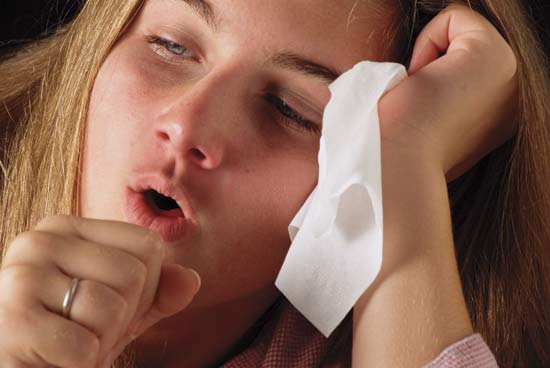
The number of whooping cough cases has increased in the Missoula area, but the county health department believes more are going unreported.
Missoula County Health Department’s infectious disease specialist Brigid O’Connor said that 15 cases were seen in Missoula County from October to December of last year, and five cases were reported in January. However, O’Connor said many more probably went undiagnosed.
“For every case we see, there’s eight cases we don’t see,” she said.
Whooping cough, referred to by doctors as pertussis, is a highly contagious respiratory infection and is notorious for causing violent fits of coughing and the “whooping” sound heard in people inhaling after coughing. The Center for Disease Control website reported that whooping cough occurs most often in infants and young children, though older children and adults are also susceptible, and can spread it to babies who haven’t been immunized.
O’Connor explained that there is usually a rise in cases of whooping cough about every five years, and that the last time there was an outbreak of pertussis in Missoula was in 2005.
“It’s just time for us to see another upswing in cases,” O’Connor said.
The symptoms of whooping cough are similar to chest colds, bronchitis and some viral coughs, which is why many cases go undiagnosed, said O’Connor.
Whooping cough is spread from person to person by coughing and sneezing in close quarters. It’s easily treated with antibiotics, and O’Connor recommended staying home from school or work for about five days after starting medication. By then, those infected are less contagious.
Whooping cough is sometimes called the 100-day cough, and getting over it takes time.
“Some people say they cough for months,” O’Connor said, “It’s a drag.”
Karen Behan, the clinical laboratory supervisor at Curry Health Center, said no students have been seen for whooping cough this year. The University does not require enrolled students to be vaccinated against pertussis, nor does it specifically suggest getting vaccinated.
For those living or working in close quarters like dorms, O’Connor said to avoid coughing or sneezing on people. getting tested for pertussis as quickly as possible after symptoms appear is important, especially people who work with or care for infants.
“It can be deadly for little babies and toddlers,” O’Connor said.